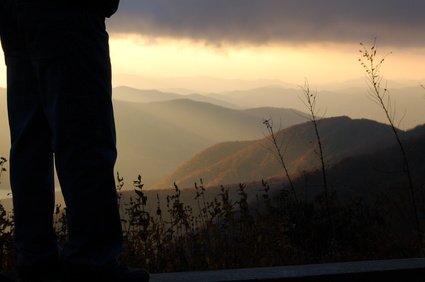 Loitet is the toughest man I ever knew. I love him. He is my hero. A man who knew me before I knew myself. Who has memories of me that I do not. Loitet is black. Jet black, beautiful black. So black that on a dark moonless night he is invisible unless he smiles. And what a smile. Bold gleaming teeth and eyes full of mischief.
Loitet is the toughest man I ever knew. I love him. He is my hero. A man who knew me before I knew myself. Who has memories of me that I do not. Loitet is black. Jet black, beautiful black. So black that on a dark moonless night he is invisible unless he smiles. And what a smile. Bold gleaming teeth and eyes full of mischief.
Loitet tells me that my first language was also his. That a tiny blonde American toddler could speak Turkana before she could speak English. Sadly, as I grew older, memories of our early years together faded along with the language. Years later when I was a teenager, Loitet would speak to me in Turkana hoping to jar my memory but the language never came back.
I don’t remember when he came to work for us. He was just part of the family. He worked, I am sure, doing whatever it was grownups do while children play in their only little worlds. But he seemed always to be around when any of us needed something.
He was willing to do any needed task so one day my mother asked him to kill and pluck chickens for dinner. Some time later, she noticed a commotion going on in the yard. Listening, she heard repeated loud chicken noises. Squawk!!!! buk, buk, buk… Squawk!!! buk,buk,buk… Squawk!!! buk,buk,buk…. What on earth? She ran to the door and saw several scrawny, feather-less chickens running frantically around the yard. “Stop,” she cried. “You are supposed to kill them before you pluck them!” Loitet looked up in bewilderment. “But the feathers are much easier to remove when they are alive!” Still, he was his usual cheerful self as he agreed to do it herway for the sake of the chickens.
Loitet was amazing. He was a man from the far reaches of the back country. He lived what is considered by some to be a very primitive life, with none of the material things we take for granted. He was a complete novice at what some choose to call civilization but on our travels no one ever guessed. Where we went he did. He looked at my parents and those around him for cues as to how to behave and what to do. Meals at fancy restaurants were easy as he paused the briefest of moments to watch what fork was used or where the extra glasses were placed. To my eyes it looked easy but I was a child. Now as I navigate some of those same waters I realize he probably suffered many nervous moments, but it never showed.
Our occasional trips to the beach were taken with him. A non-swimmer, he was our lifeguard. I remember being 6 or 7 swimming in the ocean and being grabbed by the retreating waves. As I began to be sucked out with the tide he grabbed me and pulled me back. He did this repeatedly for my brother and I always calmly, always laughing, never showing that we had anything to fear and so we didn’t.
Loitet once crossed a deep river that had no bridge. He jumped in and was sucked along the bottom holding his breath. Periodically, he would jump and flail his way to the surface for a gulp of air then go down and attempt to move forward on the bottom. He would continue this way until far downstream he would arrive at the other side. The alternative would have been a long wait until the river (swollen from the rare rain) went down. I guess he was in a hurry.
There were many scars on Loitet’s body. I never heard all the stories, but young Turkana men are great warriors. They play fight to prepare for battle. They wear wrist knives. These are circular bits of sharp metal, wrapped around their wrists, whose outside circumferences are covered with leather strips. During practice fights the leather strip stays on. When neighboring tribes attack the strips come off and nasty wounds can result. Like all young men around the world drinking is common. Unfortunately, alcohol does to Turkana youth what it does to all youth. It clouds their judgement. And friends actually rip off the strips and cut each other. I think some of Loitets’ scars came from friendly fights. As I said- he was tough.
Loitet had herds of animals, goats mostly, suited for the hot, sparse vegetation of the desert. Animals are the wealth of nomadic men such as Loitet and caring for them is a constant challenge. Water must be found in a land where the rainfall is measured in tenths of inches. Forage must be found when the ground is mostly dirt and blowing sand. They must be protected from their own stupidity. Goats get lost or stuck in strange places with remarkable ease. And they get eaten. A man’s entire net worth and his family’s future survival can be taken out in a short time by a marauding animal. In the desert there are no policeman to capture or relocate the animals. There are no big fences to keep the weak animals in and the predators out. There is only one man caring for his goats.
So Loitet became a leopard killer. Strictly speaking, he killed many other predators. But my memory cherishes a story Loitet told me about a leopard. When the goats began to get restless and outright crazed it was a pretty good sign that something scary was out in the dark. Loitet, dressed like most other desert dwellers of the area, wore nothing but a “shuka”, a long sarong- like piece of cloth wrapped around his body. He took the cloth and wrapped it repeatedly around his forearm letting the remaining fabric hang down in front of him. Then he went looking for the animal; the cloth-wrapped arm lifted high for protection, panga (machete) held in the other. The Leopards’ eyes gleamed and he had only a moment. As it sprang he jammed the protected arm into the leopards’ mouth. With the panga he stabbed through the cloth into the leopards’ unprotected chest and belly! The hanging cloth tangled the leopards back legs as it tried to disembowel him; thus, he was able to get the leopard before it got him.
Loitet is gone now. There are few men like him. Men who can move from a danger-filled desert to a fancy city restaurant. Men strong enough to kill to protect their own or gentle enough to dry the eyes of a child. He was my protector. He was my hero.





Leave a Reply